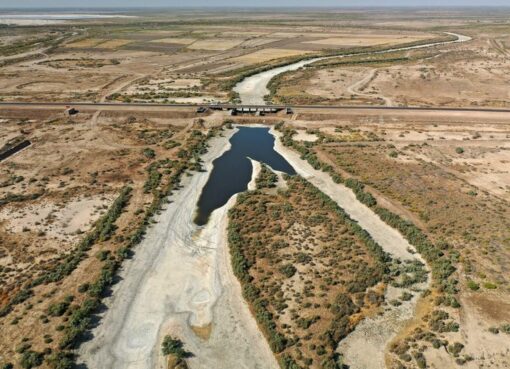Abstract
Iraq’s economy continued its recovery after the sharp, pandemic-induced recession in 2020 but growth constraints in the oil sector have reemerged. After moderating in 2022, consumer price inflation ticked up in early 2023, fueled by the depreciation of the Iraqi dinar in the parallel market. Fiscal and external account balances benefitted from the oil windfall in 2022 but this trend significantly moderated in early 2023. The new budget is excessively expansionary, and lacks the structural reforms that Iraq needs to develop a vibrant and sustainable economy. The economic outlook remains subject to significant risks, largely due to deep structural challenges. Urgent implementation of financial sector reforms and modernization of its banking sector architecture, currently major barriers to economic diversification, are a critical condition to bolster the private sector and unlock much-needed job creation. Financial access in Iraq is amongst the lowest in the world, with only 19 percent of adults owning a bank account, highlighting a significant underutilized source of financing. Crucially, lack of financing remains the top constraints for small and medium enterprises and firms operating in the informal sector, undermining private sector-led growth and job creation. As this report’s Special Focus highlights, this is in part due to the banking sector structure and operations, which is dominated by undercapitalized state-owned banks with weak institutional capacities that primarily provide financing to public sector entities and state-owned enterprises. The private commercial banking sector is weak and has limited capacity to support financial intermediation and is geared towards maximizing revenues from the foreign exchange auctions. Furthermore, the non-banking financial sector is nascent with small and underdeveloped capital markets, unregulated Micro Finance Institutions, and an underdeveloped insurance sector. To tackle these challenges, the sector’s reform priorities include institutional reforms in state-owned banks and incentivizing digital financial services to increase financial intermediation and promote financial inclusion in Iraq. The full implementation of these reforms can help restore public confidence in the financial sector and help mobilize Iraq’s wealth towards solving the pressing development challenges of the country.
Citation
“World Bank. 2023. Iraq Economic Monitor, Spring/Summer 2023 – Reemerging Pressures: Iraq’s Recovery at Risk (With a Special Focus on Financial Intermediation in Iraq). © Washington, DC: World Bank. http://hdl.handle.net/10986/40103 License: CC BY-NC 3.0 IGO.”








Comment here